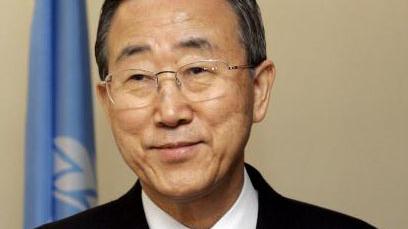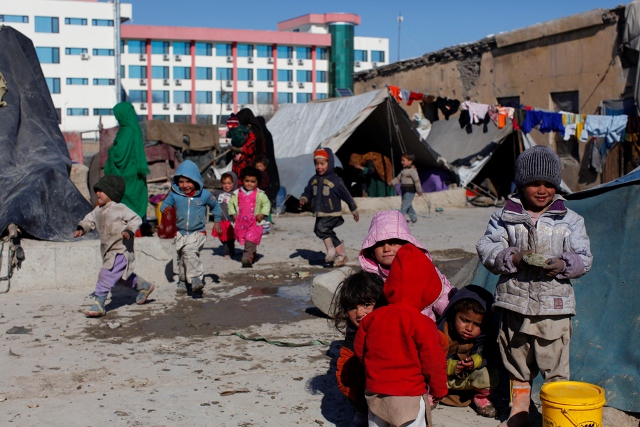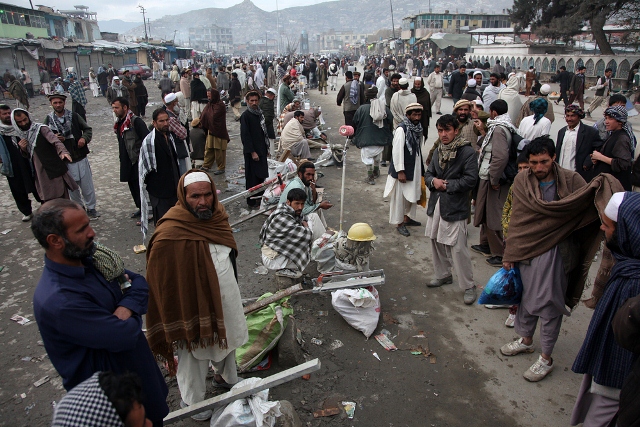KABUL - The UN Chief has called for more efforts to empower individuals through decent work, support people through social protection, and ensure that the voices of the poor and marginalised are heard.“The gap between the poorest and the wealthiest around the world is wide and growing… this situation is not only between countries but within them, including many of the most prosperous,” said the Secretary-General of the United Nations, Ban Ki-moon in his statement on the occasion of the World Day of Social Justice.
The Day is celebrated every year on 20 February after, in 2007, the UN General Assembly invited its Member States to devote the day to promoting national activities in accordance with the objectives and goals of the World Summit for Social Development and the 24th session of the General Assembly.
The observance of Day is aimed supporting the efforts of the international community in poverty eradication, the promotion of full employment and decent work, gender equity and social well-being and justice for all.
“The World Day of Social Justice is observed to highlight the power of global solidarity to advance opportunity for all,” said Mr. Ban.
He further said that the circumstances such as where a person is born, where they live or their gender and ethnicity should never determine their income or their opportunities for quality education, basic healthcare, decent work, adequate shelter, access to drinking water, political participation or living free from threatened, or actual, physical violence.
“As inequalities widen, the social fabric of our societies is both stretched and strained,” said Mr. Ban, adding “This often leads to a downward spiral of economic and social uncertainty and even unrest.”
The Secretary-General of the world body also stated that the violent conflict in many parts of the world is often rooted in deep inequality, discrimination and widespread poverty.
In Afghanistan, the survey conducted by the national Central Statistic Organization (CSO) in 2012 showed that 36 per cent of the population – around 10 million people – lived under poverty line with less than one dollar income daily.
The survey further said that another 15 per cent of the Afghan population live on the medium line of poverty and there were always chances of them leaning down below the poverty of line.
The survey conducted by the Ministry of Labour, Social Affairs, Martyrs and Disabled (MoLSAMD) showed that Afghanistan had nine million eligible workforce, out of which three million were jobless. At the same time, the CSO survey showed even higher number of jobless in Afghanistan putting it at four million.
“The Afghan Constitution has categorically emphasized social justice in the society of Afghanistan; however, in practice, a large number of people live under the poverty line and they are deprived of very basic services including health and education,” said Farid Hameedi, one of the Commissioners of the Afghanistan Independent Human Rights Commission (AIHRC).
Mr. Hameedi said that three decades of civil war destroyed infrastructure required for ensuring social justice and that Afghanistan had to start “from zero,” following the fall of the Taliban regime and the establishment of the interim government in 2001. Despite all efforts during last 12 years, Afghanistan, which is still facing multiple economic, developmental and security challenges, has a long way to go for ensuring social justice.
For the United Nations, the pursuit of social justice for all is at the core of its global mission to promote development and human dignity. The adoption by the International Labour Organization of the Declaration on Social Justice for a Fair Globalization in 2008 is just one recent example of the UN system’s commitment to social justice. The Declaration focuses on guaranteeing fair outcomes for all through employment, social protection, social dialogue, and fundamental principles and rights at work.
“Yet there is nothing inevitable about inequality. Our shared goal should aim at taking practical steps to remove this formidable barrier to development and human dignity,” said Mr. Ban.
The Secretary-General concluded his statement by saying: “As we continue our efforts to achieve the Millennium Development Goals and shape a post-2015 development agenda, let us make social justice central to achieving equitable and sustainable growth for all.”








